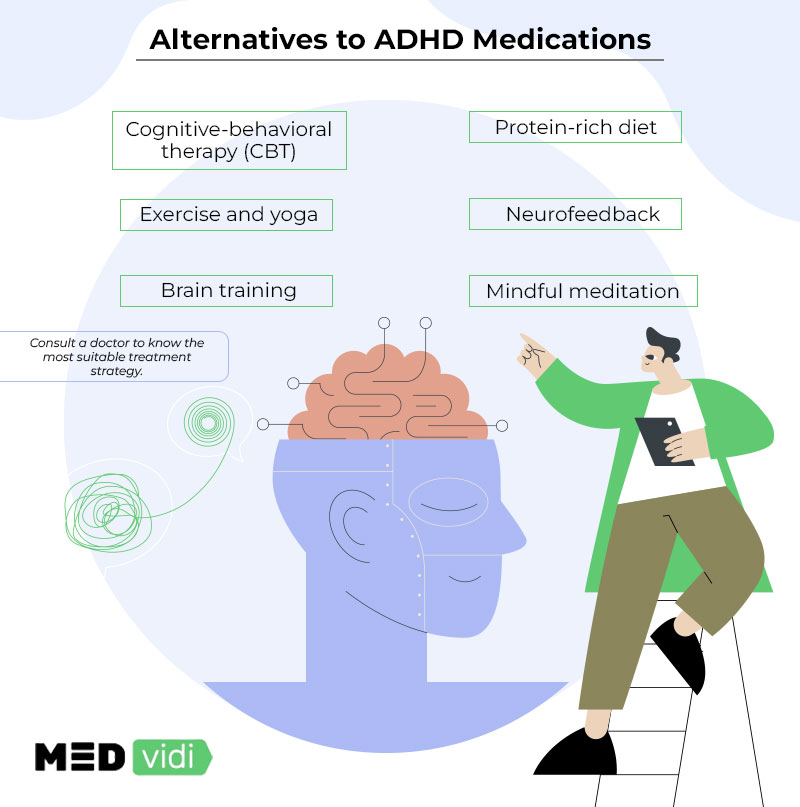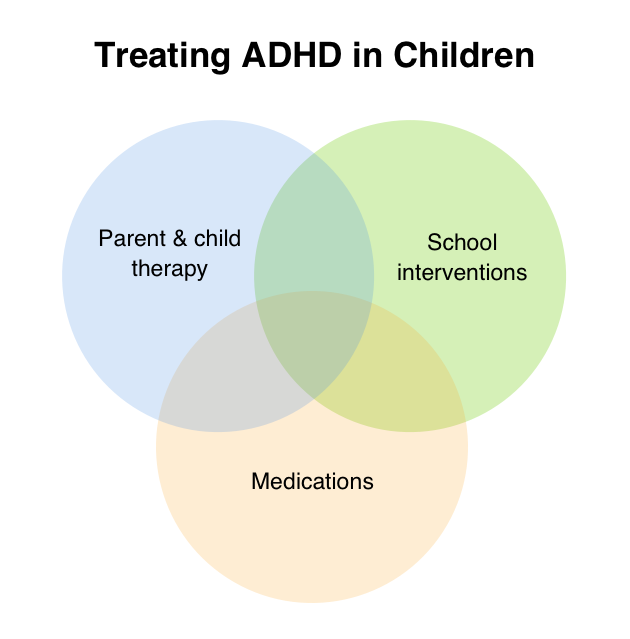Your Guide to Finding the Right ADHD Therapy for Long Lasting Outcomes
Navigating the complexities of ADHD treatment calls for a nuanced understanding of both the problem and the myriad options available for effective management. It is vital to identify that what jobs for one person might not always generate the same results for another.
Comprehending ADHD and Its Impact

In grownups, ADHD can result in challenges in office atmospheres, affecting performance, time administration, and social connections. Commonly, undiagnosed or incorrectly managed ADHD can add to co-occurring mental health concerns, such as anxiety and clinical depression, additional complicating a person's overall health.
The societal assumption of ADHD can vary, leading to preconception and misunderstanding, which might impede individuals from looking for assistance. As awareness expands, it is vital to foster an environment that promotes understanding and assistance for those affected by ADHD, highlighting the demand for precise medical diagnosis and tailored methods to mitigate its effect on day-to-day life.
Overview of Therapy Options
A detailed strategy to dealing with ADHD includes a selection of options tailored to the individual's one-of-a-kind needs. These choices can generally be classified into behavioral interventions, psychoeducation, and way of living modifications, along with medicinal therapies that might be discovered later.
Behavioral interventions, such as cognitive-behavioral treatment (CBT), emphasis on changing specific behaviors and establishing coping approaches to take care of symptoms efficiently. Psychoeducation plays a crucial role in equipping both individuals and their households by supplying details about ADHD, its challenges, and effective techniques for support.
Way of life adjustments can substantially influence ADHD monitoring. Regular exercise, a balanced diet plan, and appropriate rest add to total health and symptom control. Mindfulness methods and relaxation methods can additionally enhance emphasis and lower impulsivity.
Support system and family therapy can foster a sense of community and understanding, helping individuals feel less separated in their experiences. Each therapy alternative must be taken into consideration together with the person's choices and situations, guaranteeing an alternative method that promotes long-term success. Inevitably, the goal is to create a personalized treatment strategy that attends to the details difficulties associated with ADHD while improving total lifestyle.
Medicine: Pros and Cons
Drug plays an essential role in the therapy of ADHD, with various options readily available that can substantially minimize symptoms for several people. Stimulants, such as methylphenidate and amphetamines, are frequently prescribed and have actually revealed effectiveness in boosting focus, lowering impulsivity, and improving overall habits. These medicines work by raising dopamine and norepinephrine levels in the brain, which are typically dysregulated in those with ADHD.
Nevertheless, making use of drug is not without its difficulties. Some individuals may visit this page experience side effects, including sleep problems, reduced cravings, or enhanced anxiousness. Locating the best dosage can be an experimental procedure, requiring close Continue tracking by medical care specialists. Additionally, not all individuals reply to energizer medications, leading some to check out non-stimulant options, which might have a postponed onset of action or various adverse effects.
It is crucial for people and their family members to consider these benefits and drawbacks carefully. Balancing the advantages of signs and symptom monitoring versus possible side results is crucial for achieving optimum therapy end results. Cooperation with doctor can promote enlightened choices, making certain that drug becomes part of a detailed ADHD management plan.
Behavioral Treatment Techniques

One generally employed method is Cognitive Behavior modification (CBT), which helps individuals identify and change unfavorable thought patterns that add to ADHD-related obstacles. Therapist for ADHD. Via CBT, customers discover to set sensible goals, handle time successfully, and establish organizational systems
Another reliable technique is Parent Monitoring Training (PMT), which enlightens moms and dads on exactly how to strengthen positive behaviors and minimize unfavorable ones via constant self-control and communication methods. This strategy cultivates a helpful home environment that encourages behavior renovations.
Social skills training is also important, helping individuals with ADHD navigate social interactions much more efficiently. Role-playing and modeling appropriate habits can enhance social proficiency and reduce anxiousness in social circumstances.
Lifestyle Changes for Better Management
Exactly how can way of living modifications significantly improve the monitoring of low dose antidepressants ADHD signs? Implementing calculated way of living modifications can cause substantial enhancements in focus, organization, and emotional guideline for people with ADHD.
First of all, developing an organized daily routine assists in developing predictability, which can reduce feelings of bewilder. Regular schedules for meals, research study, and rest can boost day-to-day functioning.
Integrating routine physical task is additionally important, as workout has actually been shown to boost dopamine levels, enhancing focus and inspiration (Therapist for ADHD). Intending for a minimum of thirty minutes of moderate exercise most days can be valuable
Nourishment plays a pivotal function. A well balanced diet regimen abundant in omega-3 fats, entire grains, and protein can support cognitive function. Limiting processed sugars and high levels of caffeine might minimize symptoms, as these can result in power collisions and irritation.
Conclusion
In final thought, finding the ideal ADHD treatment demands a diverse approach that takes into consideration private needs and choices. Collaboration with medical care experts and open communication with assistance networks are important parts in navigating the intricacies of ADHD monitoring, ultimately leading to long lasting outcomes and boosted quality of life.
Comments on “Mental Health Services Specializing in Individualized Support”